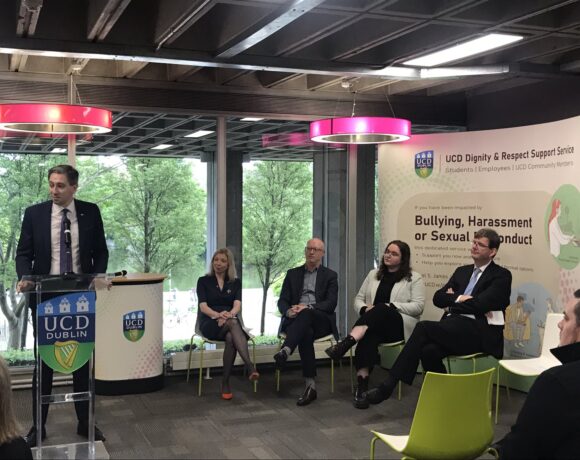A few years ago, a CEO assured me that his company was the market leader. “Clients will not leave for competitors,” he added. “It costs too much for them to switch.” Within weeks, the manufacturing giant Procter & Gamble elected not to renew its contract with the firm. The CEO was shocked — but he shouldn’t have been. This relfects an organisational problem with a root cause: A lack of critical thinking.
Too many business leaders are simply not reasoning through pressing issues, taking the time to evaluate a topic from all sides. Leaders often jump to the first conclusion, whatever the evidence. Even worse, C-suite leaders will just choose the evidence that supports their prior beliefs. A lack of metacognition — or thinking about thinking — is also a major driver, making people simply overconfident.
The good news is that critical thinking is a learned skill. Based on my personal experience as well some of the work of our researchers, I’ve pulled together three simple things that you can do to improve your critical thinking skills:
-Question assumptions
-Reason through logic
-Diversify thought
Question assumptions
When I work to turn around an organisation, I’ll typically start by questioning the firm’s assumptions. I once visited dozens of stores of a retail chain, posing as a shopper. I soon discovered that the company had presumed that its customers had far more disposable income than they really had. This erroneous belief made the company overprice its clothing. They would have made millions more each year if they had sold lower priced
shirts and pants.
Of course, it’s hard to question everything. Imagine going through your day asking yourself: Is the sky really blue? What if the person next to me isn’t my colleague but her twin sister? How do I really know that the economy won’t implode tomorrow? The first step in questioning assumptions, then, is figuring out when to question assumptions. Turns out, a questioning approach is particularly helpful when the stakes are high. So if you are in a discussion about long-term organisational strategy upon which years of effort and expense will be based, be sure to ask basic questions about your beliefs: How do you know that effectiveness will increase?
Base your decisions on logic
At your organisation, pay close attention to the “chain” of logic constructed by a particular argument. Ask yourself: Is the argument supported at every point by evidence? Do all the pieces of evidence build on each other to produce a sound conclusion?
Being aware of common fallacies can also allow you to think more logically. For instance, people often engage in what’s known as “post hoc” thinking. In this fallacy, people believe that “because event Y followed event X, event Y must have been caused by event X.” So, for instance, a manager may believe that their sales agents rack up more sales in the spring because they’re fired up by the motivational speeches offered at the
annual sales conference in February — but until that assumption is tested, there’s no way the manager can know if their belief is correct.
Seek out diversity of thought and collaboration
For years, I was the only female partner on McKinsey’s transformation team. And today, while I serve on more than a half-dozen corporate boards, I am typically the only Asian and the only woman in the room during meetings.
By virtue of my background and life experiences, I tend to see things differently from the people around me. This has often played to my advantage. But I’m not immune to groupthink, either. When I’m around people similar to me for whatever reason — age, politics, religion— I try to solicit different points of view. It makes me a better thinker. It’s natural for people to group themselves together with people who think or act like them. This happens especially readily online, where it’s so easy to find a specific cultural niche.
Social media algorithms can narrow our perspectives further, serving up only news that fits our individual beliefs. This is a problem. If everyone in our social circles thinks as we do, we become more rigid in our thinking, and less likely to change our beliefs on the basis of new information. In fact, the more people listen to people who share their views, research shows the more polarized their views become.
It’s crucial to get outside your personal bubble. You can start small. If you work in accounting, make friends with people in marketing. If you always go to lunch with senior staff, go to a ball game with your junior colleagues. Training yourself this way will help you escape your usual thinking and gain richer insights. In team settings, give people the chance to give their opinions independently without the influence of the group. When I ask for advice, for instance, I typically withhold my own preferences and ask team members to email me their opinions in separate notes. This tactic helps prevent people from engaging in group think.
While these simple tactics may sound easy or even obvious, they’re rare in practice, particularly in the business world, and too many organization don’t take the time to engage in robust forms of reasoning.
But the important work of critical thinking pays off. While luck plays a role — sometimes small, sometimes large — in a company’s successes, the most important business victories are achieved through thinking smart. Helen Lee Bouygues is the president of the Paris-based Reboot Foundation.
A former partner at McKinsey & Company, she has served as interim CEO, CFO, or COO for more than one dozen companies. This is an edited
version of an article that first appeared
in Harvard Business Review.













